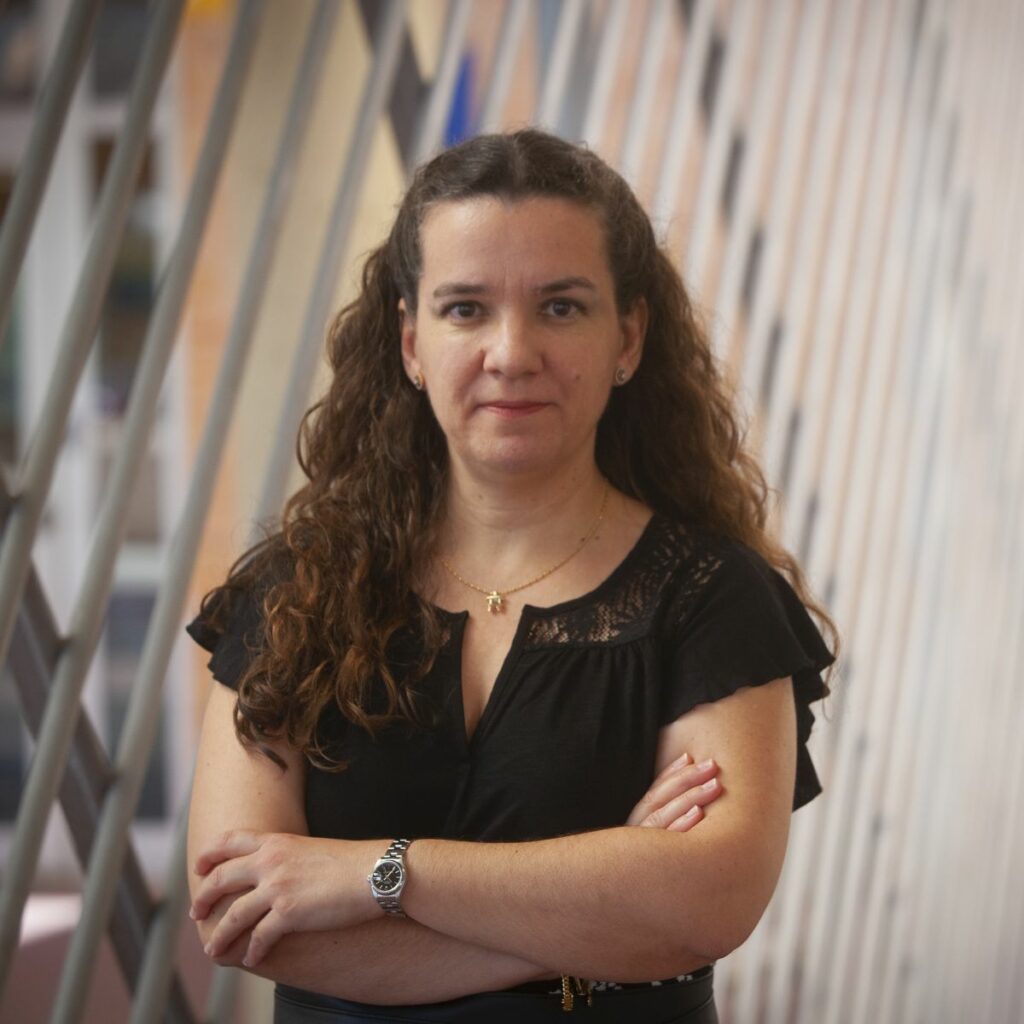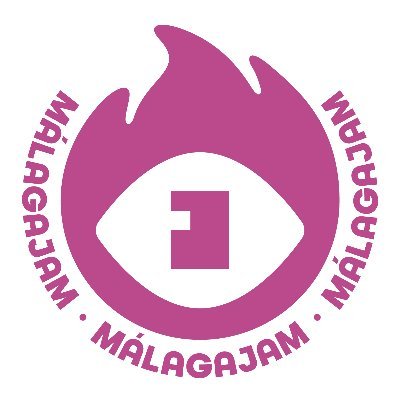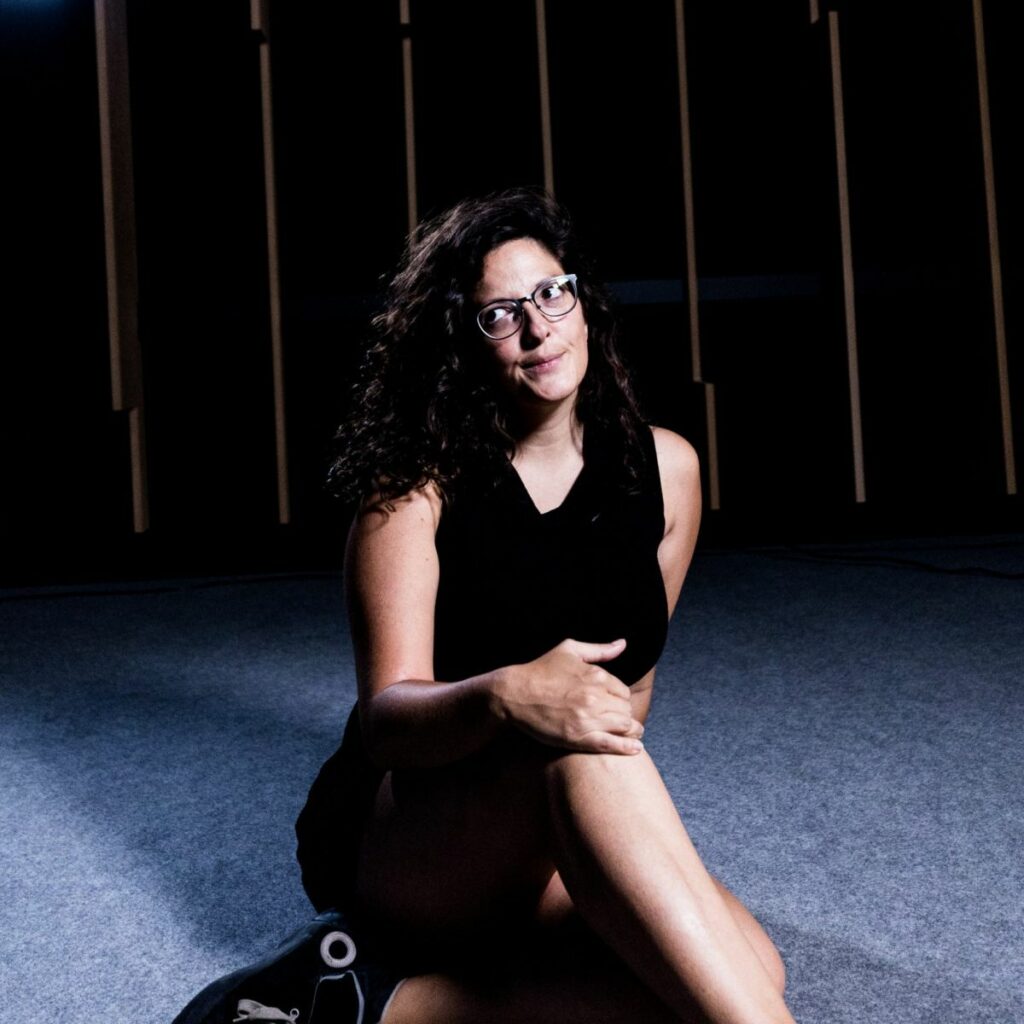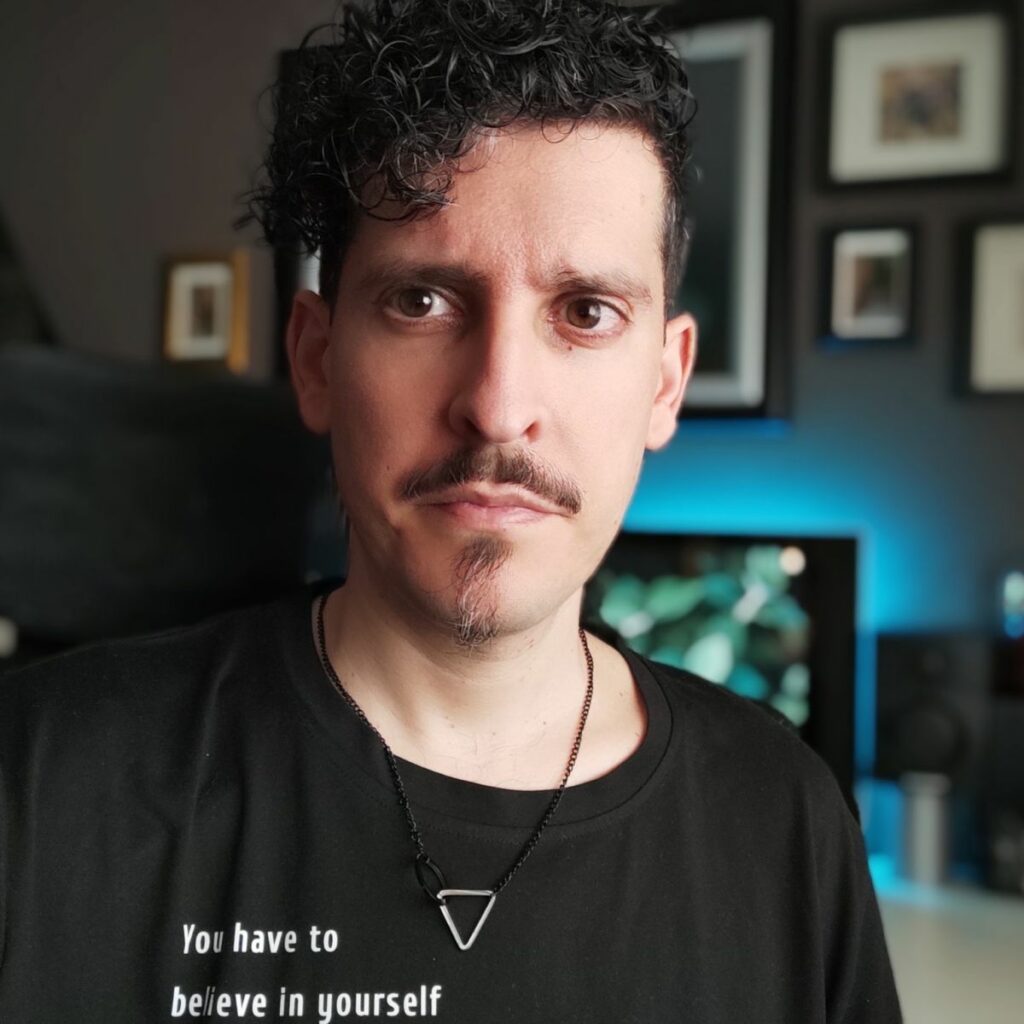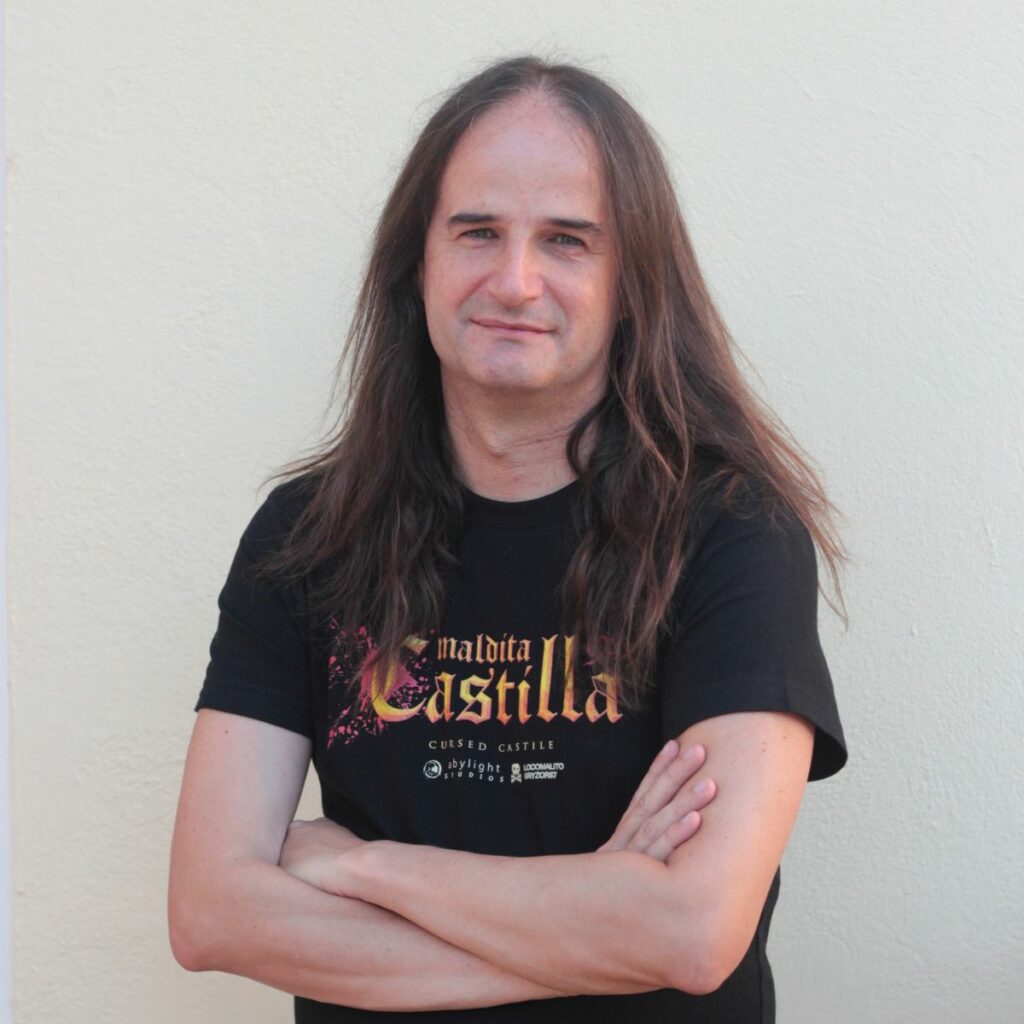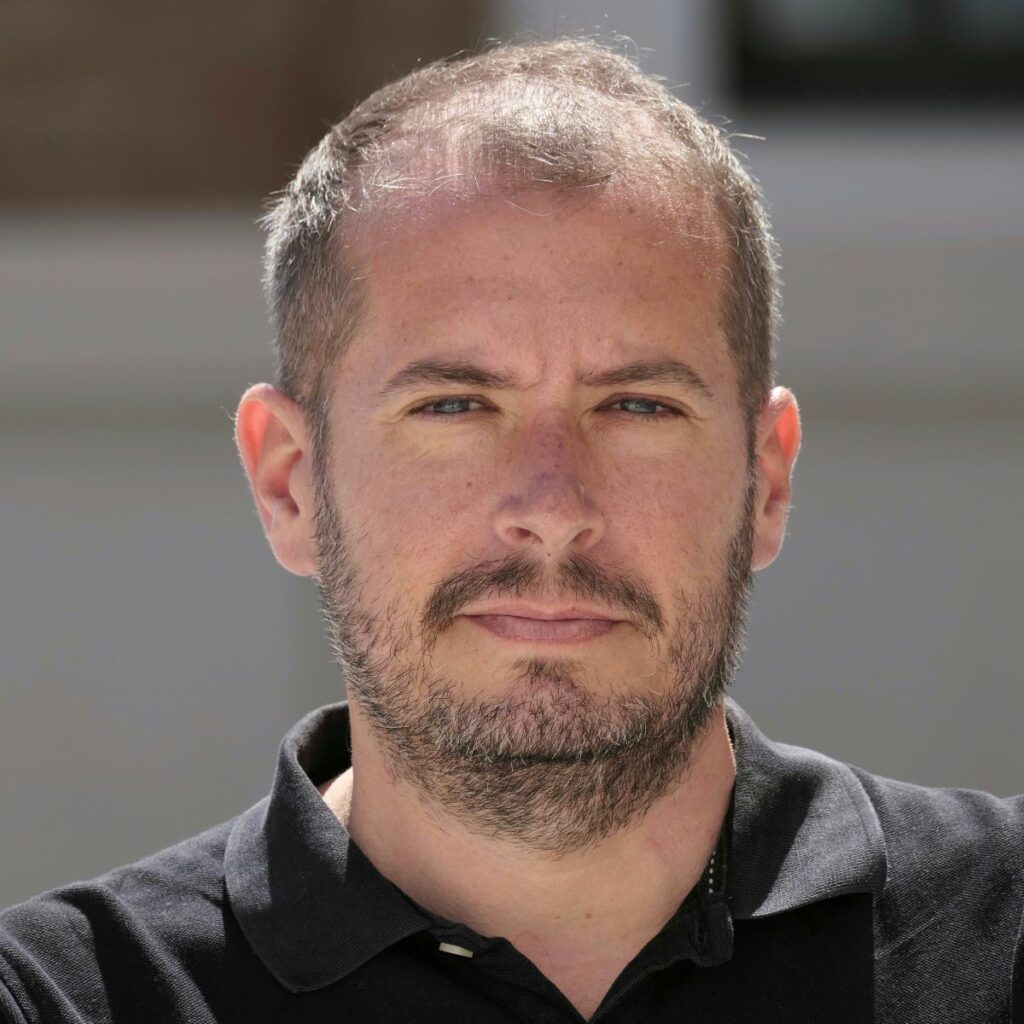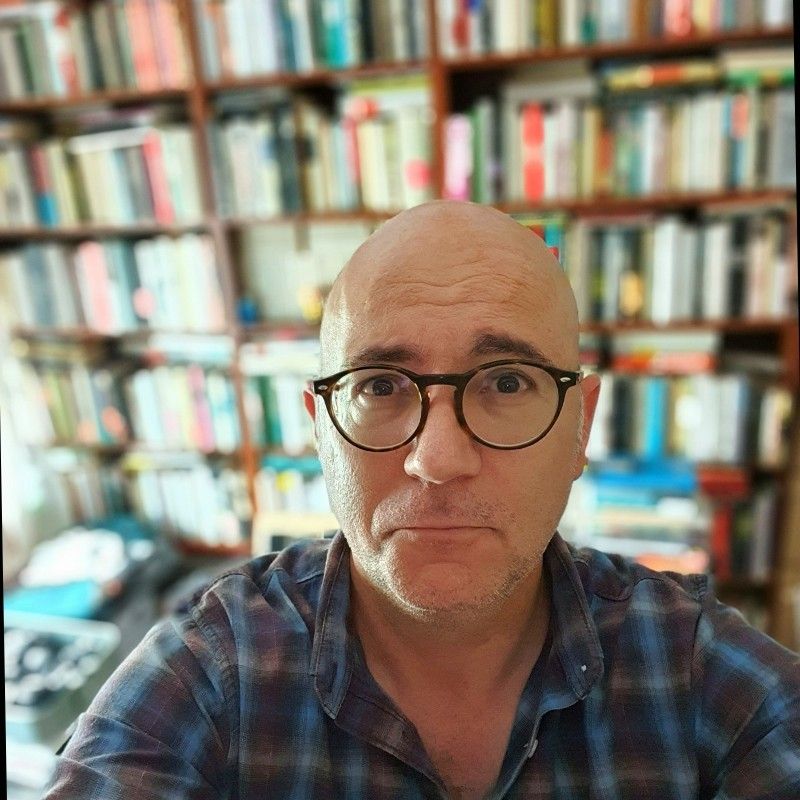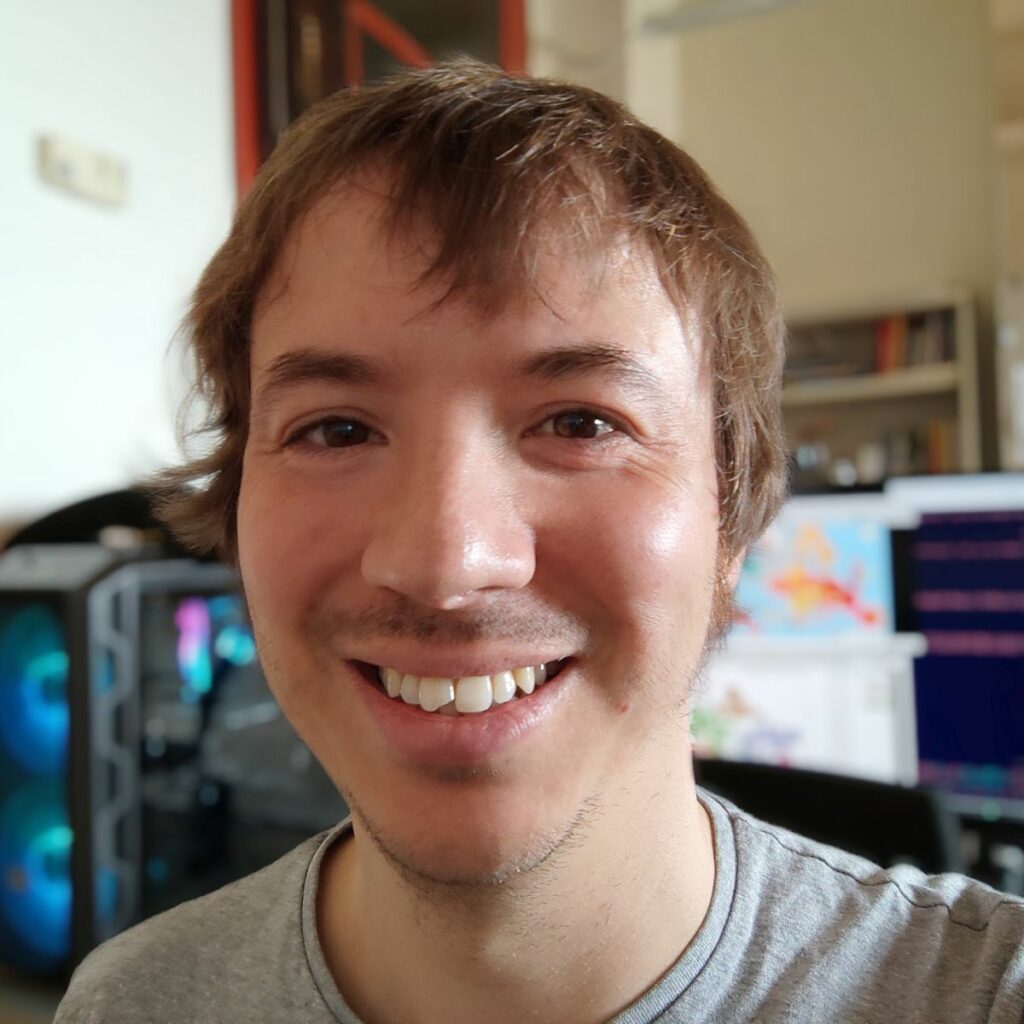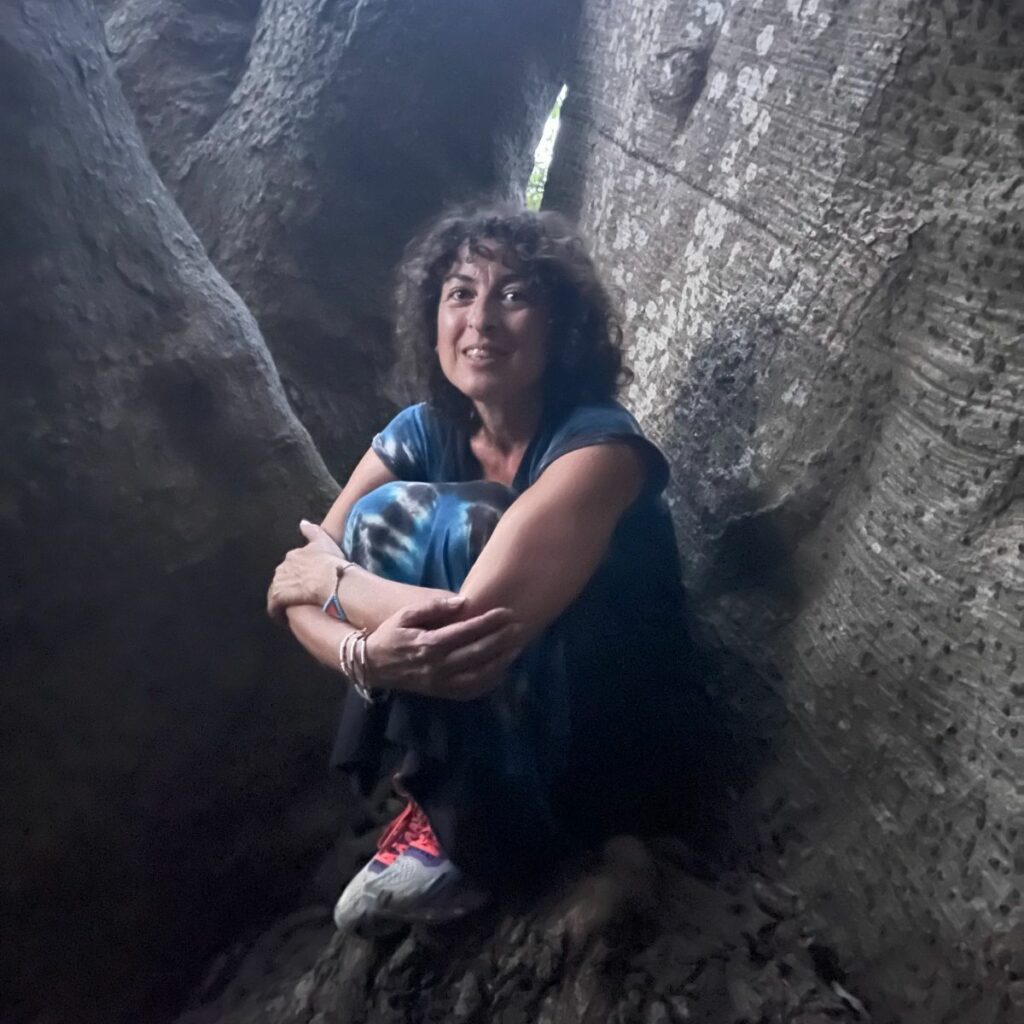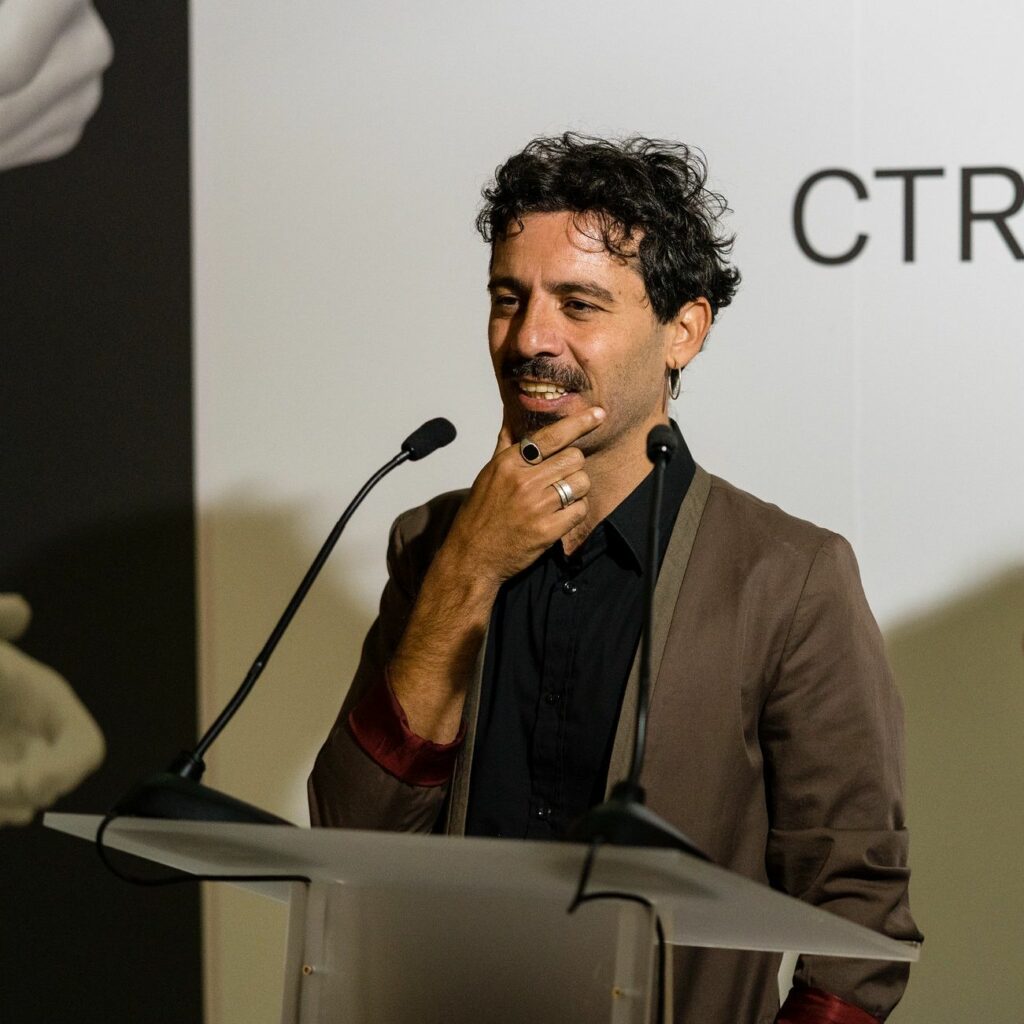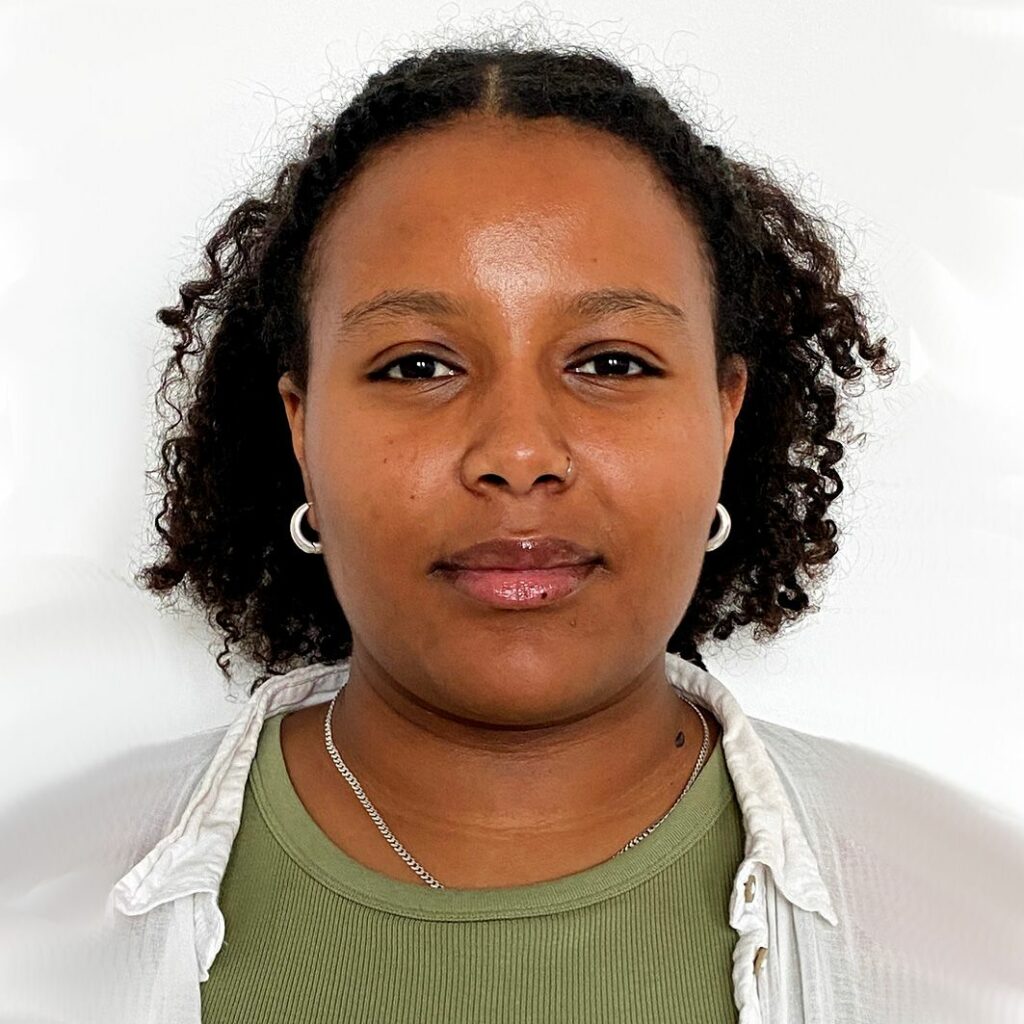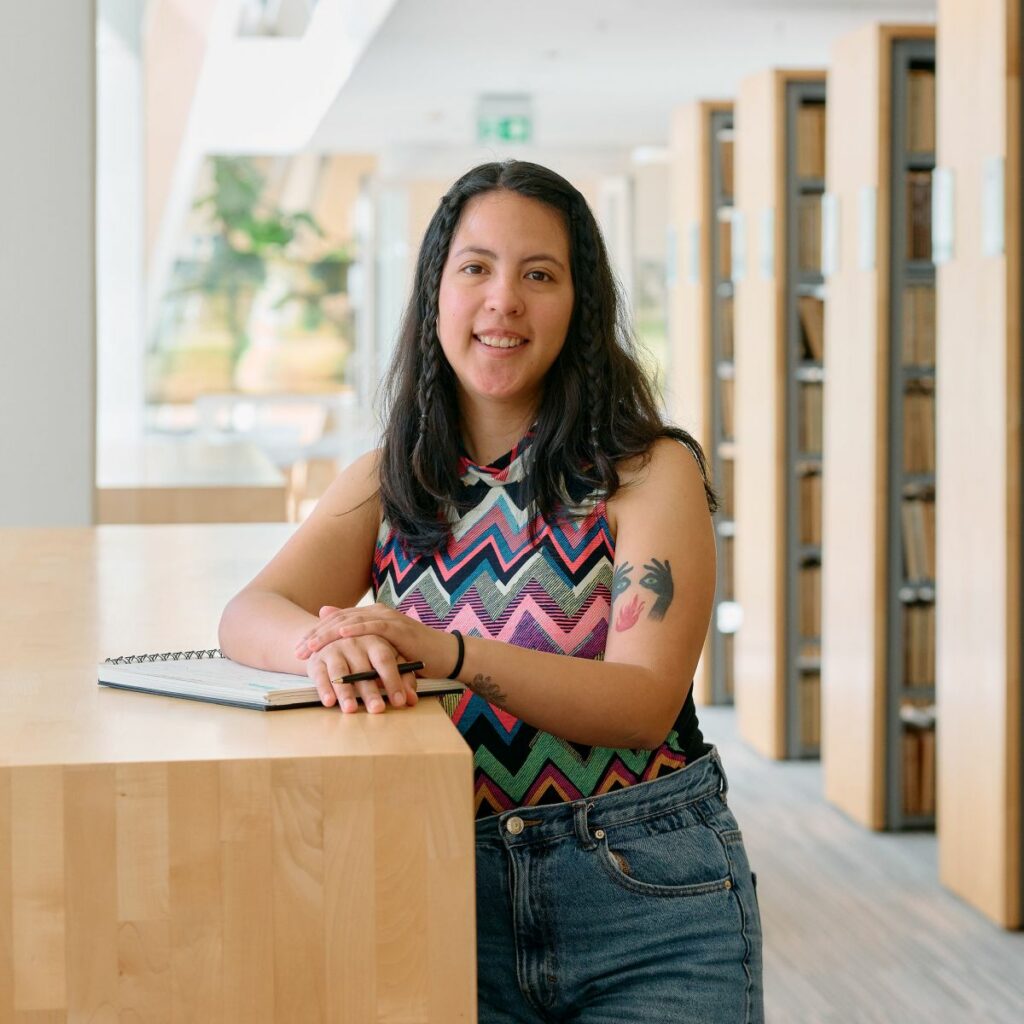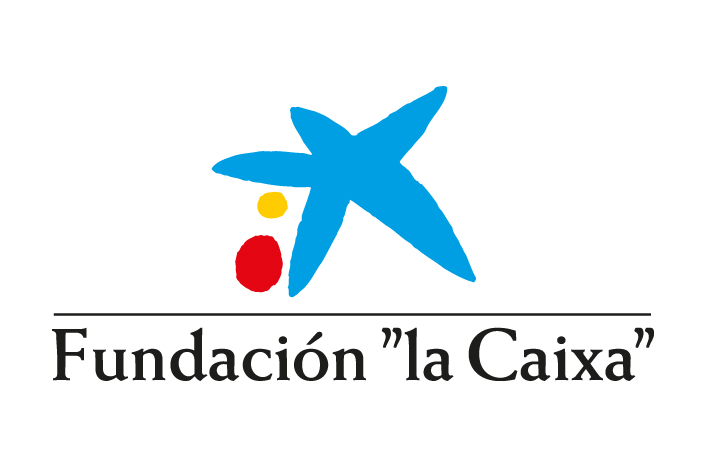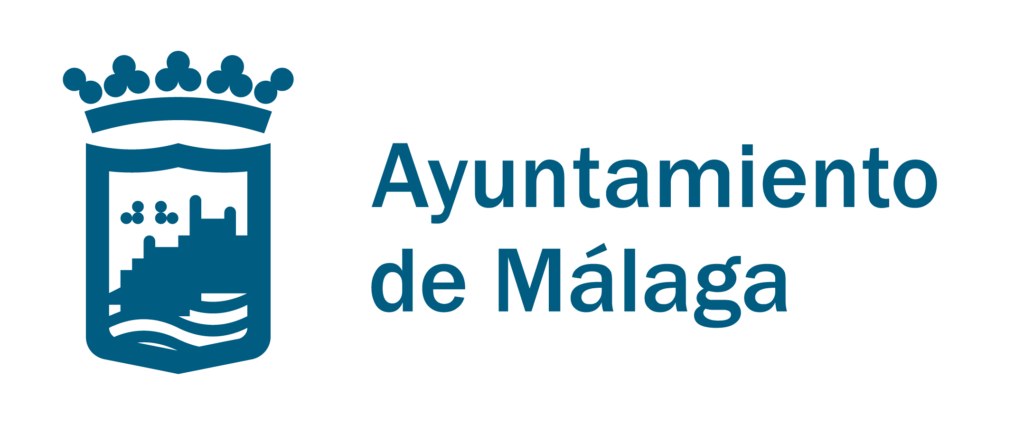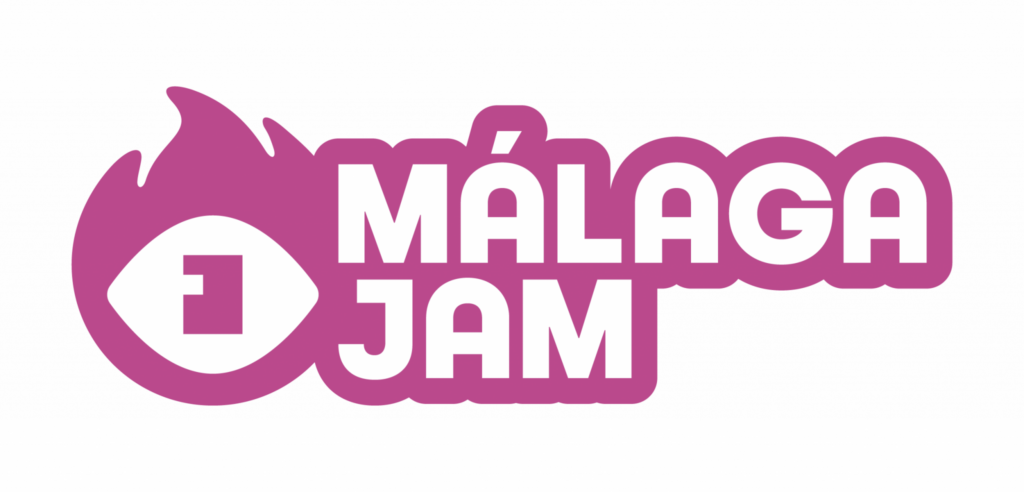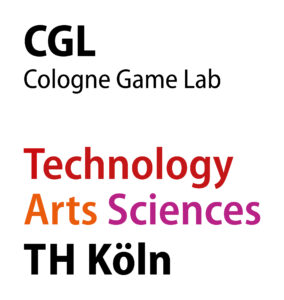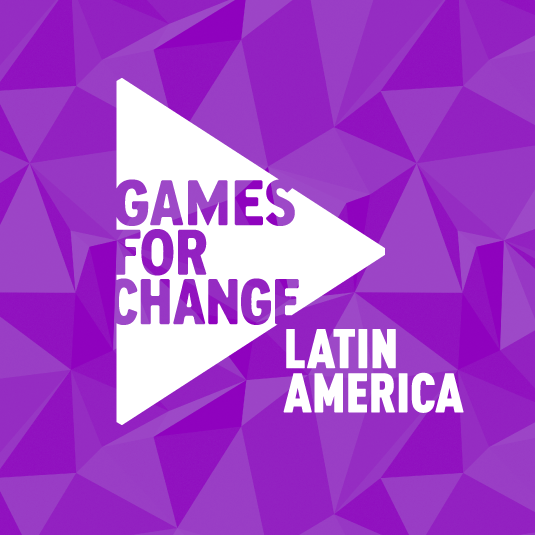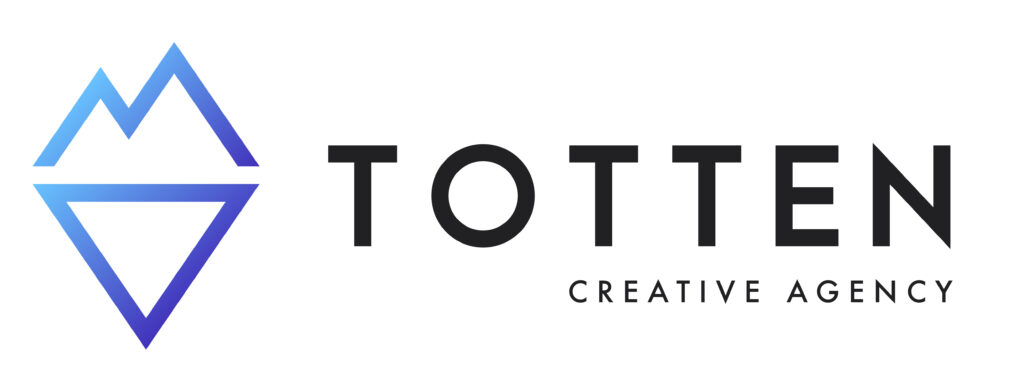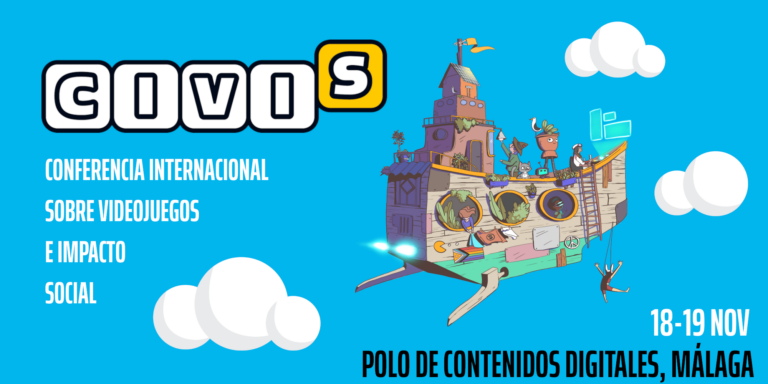
The International Conference on Videogames and Social Impact (CIVIS) is a meeting place for professionals from the world of videogames, the third sector and cultural and educational institutions. A place to meet, tell each other and look for ways to cooperate.
The conference will last 2 days and will be organized around 4 tracks, each with a specific theme. Some will have a conference format, with speakers and round tables, and others will be practical workshops. Below we provide more information on the theme, schedule and participants. Over the next few days, as participants are confirmed, we will expand this information.
MONDAY, NOVEMBER 18 (10:00 – 20:00)
Accreditation Delivery
Institutional Welcome
Table of Local Experiences
Financing and Social Impact
Networking
(10:00 – 14:00)
Lunch break
(14:00 – 16:00)
TUESDAY, NOVEMBER 19 (10:00 – 18:30)
Lunch break
(14:00 – 16:00)

OPENING PLENARY SESSION
MONDAY 18 NOV
10:00 - 14:00
PATIO
INAUGURATION
Welcome to the event by the organizations and institutions involved and presentation of the conference and program by the event management.
18 NOV
10:00
PATIO
TABLE OF LOCAL EXPERIENCES
In this space we will learn about various projects related to video games and social impact that take place in the province of Malaga.
18 NOV
11:00
PATIO
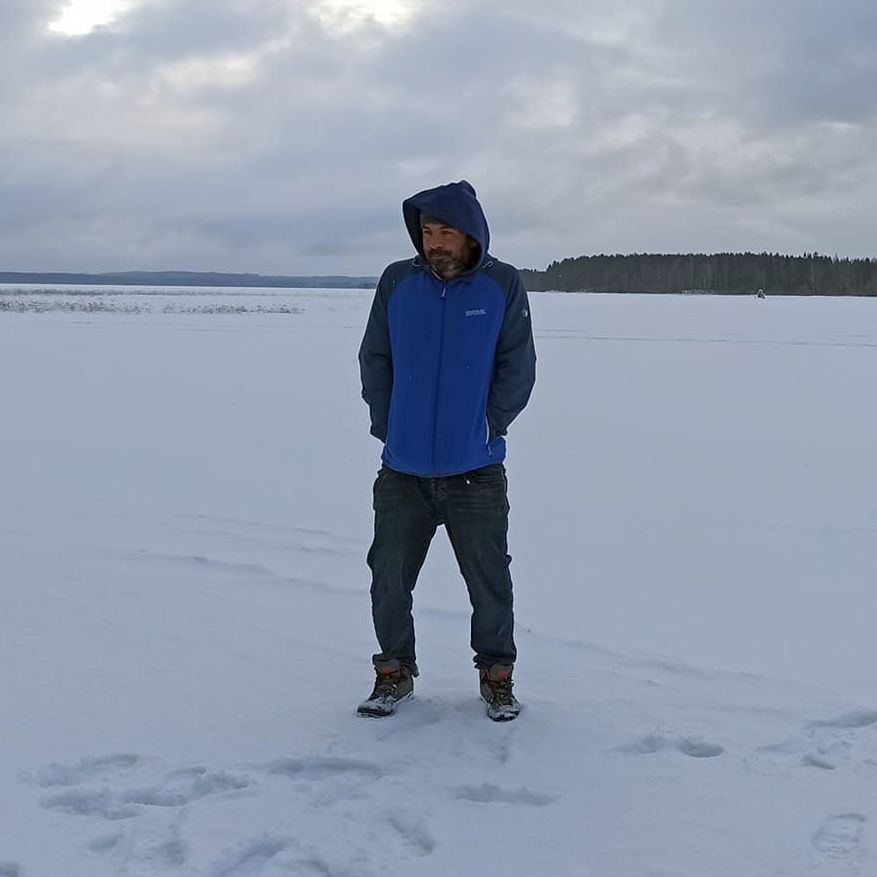
Round Table: FINANCING AND INTERNATIONALIZATION OF SOCIAL IMPACT PROJECTS AND VIDEO GAMES
At this roundtable, several entities working internationally will share their strategies and experiences regarding the financing of impact projects with video games.
18 NOV
12:00
PATIO
NETWORKING
An opportunity to get to know each other and seek synergies for our projects.
18 NOV
13:00
PATIO
TRACK 1
How to make the unpleasant attractive through Game Design
MONDAY 18 NOV
16:00 - 20:00
PROJECTION ROOM
The conference will explore the application of game design principles to enhance the appeal of traditionally uninteresting topics. Four speakers will give 30-minute presentations, followed by Q&A sessions, addressing various aspects of this topic.
Presentations will cover game types such as exergames and edugames, focusing on topics including waste separation, financial literacy, perpetrator preparedness strategies, domestic violence, criteria for high-quality serious games, and exercise. Each speaker will present examples of games that effectively engage users with these topics.
Key elements of game design will be examined, including the use of attractive visual design, minimization of text, creation of engaging characters, and incentive systems to promote replayability. In addition, speakers will discuss the quality measures and criteria necessary to develop effective serious games.
The topic will conclude with a brief reflection on the potential of these game design strategies to make educational content intrinsically engaging and enjoyable. This session aims to provide ideas and practical guidelines for integrating these principles into the development of serious games.
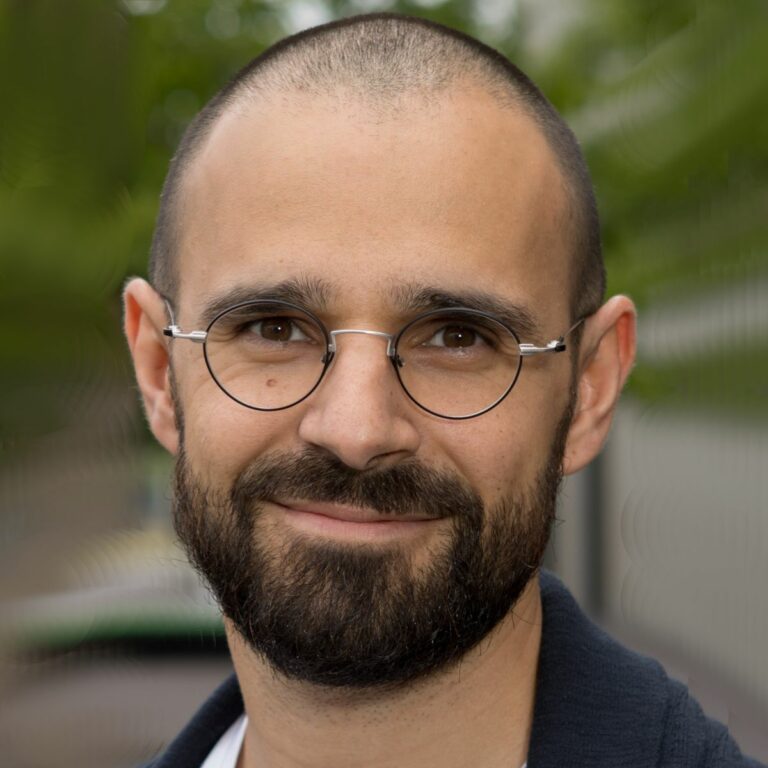
Towards a Scientific Approach to Game Design and Player Engagement
Realizing video games' potential for positive impact requires deep player engagement with well-designed experiences. In this talk, I’ll present key insights grounded in the scientific literature to move towards that goal. Realizing video games' potential for positive impact requires deep player engagement with well-designed experiences. In this talk, I’ll present key insights grounded in the scientific literature to move towards that goal.
18 NOV
16:15
PROJECTION ROOM
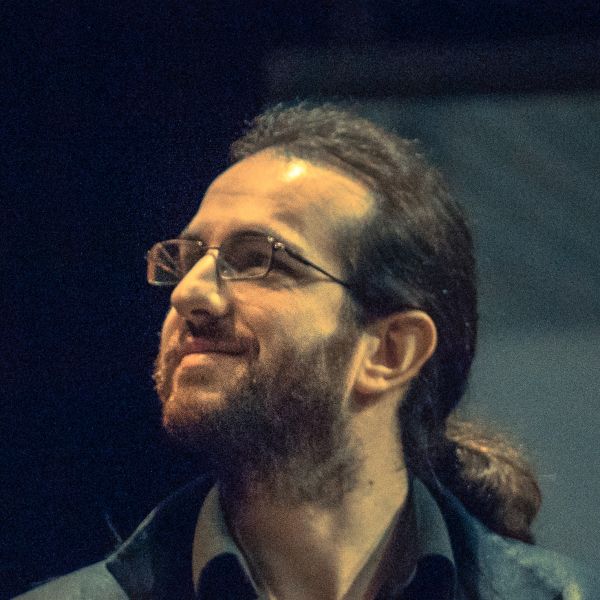
Ikigai: a not-for-profit production and distribution model in the public interest
Discover the innovative model of Ikigai, a French public service of educational games that aims to offer quality games for all audiences by bringing together educational and cultural establishments and sharing the resources developed together.
18 NOV
17:00
PROJECTION ROOM
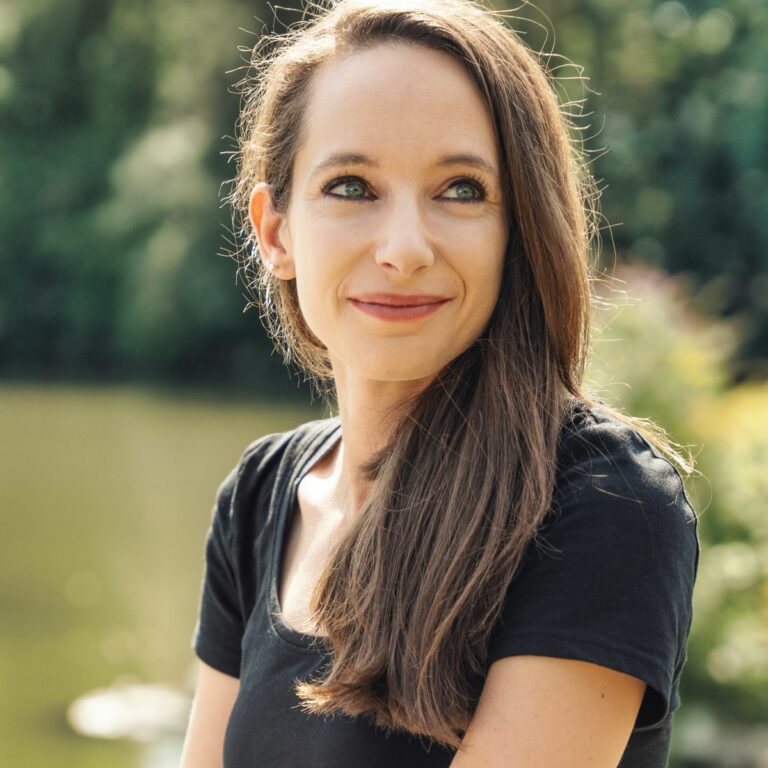
It's not just a game. It is a change in the rules of the game.
Johanna Pirker will explore how games are transforming fields far beyond entertainment. From generating empathy to enhancing education, improving health and promoting accessibility, games have become powerful tools for social impact. In this talk, we want to look at mostly unexpected ways in which games are reshaping society, demonstrating that they are not just games, but game changers.
18 NOV
18:15
PROJECTION ROOM
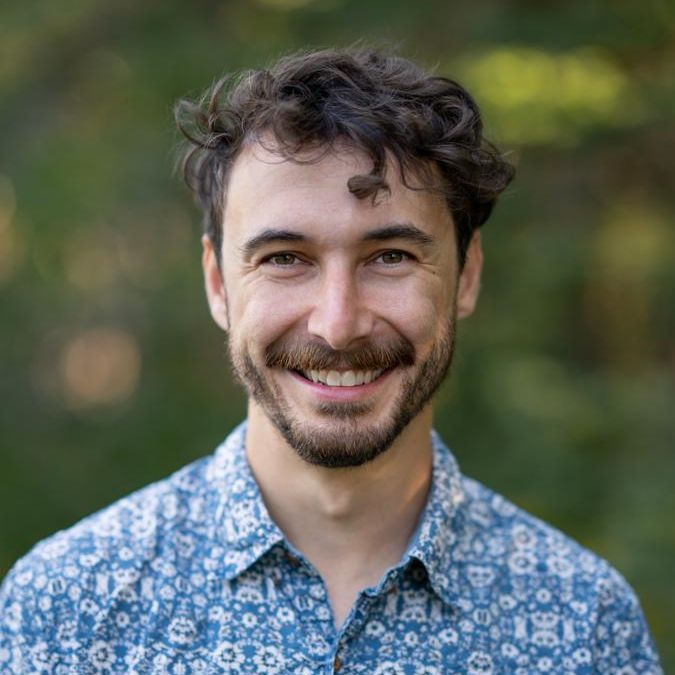
On domestic violence: creating credible victim-survivor NPCs
A team from TH Köln is creating a serious game "Victim Interview Simulator" to train police officers in victim-centered interviewing approaches. Lead designer Chad Comeau will describe the process of creating victim NPCs in collaboration with experts.
18 NOV
19:00
PROJECTION ROOM

On domestic violence: creating credible victim-survivor NPCs
A team from TH Köln is creating a serious game "Victim Interview Simulator" to train police officers in victim-centered interviewing approaches. Lead designer Chad Comeau will describe the process of creating victim NPCs in collaboration with experts.
18 NOV
18:45
PROJECTION ROOM
BIO
Chad Comeau is an Acadian game designer based in Cologne, Germany. Known in his native Atlantic Canada for his self-directed cultural games, he is currently working at the Cologne Game Lab on the ISEDA interview simulator and remotely as creative director at Reframe Games back in Canada. His experience in impact games also includes the Antura language-learning project for Ukrainian refugees.
TRACK 2
Territory, History and Traditions
MONDAY 18 NOV
16:00 - 20:00
PATIO
The track focuses on video games as a resource to narrate real places and cultural heritage, as a tool to encourage the player to discover and rethink the world. Both as a term and as a concept, “territory” is multifaceted: it refers to history, folklore and social issues at the same time. It is therefore impossible to separate the territory from the events and people that make it up.
Moreover, by mixing fiction and reality, video games also act as a powerful creative device, an extraordinary imagination machine. Suffice it to think of the multiple opportunities offered by the use of video games within school curricula, not only to promote the culture of play and literacy, but also to involve students in game design and to bring together their artistic talents and local heritage.
In such a fruitful context, finally, it is important not to underestimate the effectiveness, also from a regional marketing perspective, of so-called video game tourism: video games can potentially encourage real explorations of the places represented on the screen.
This track will address several case studies that combine video games and territory, with special attention to historical narratives and local traditions.
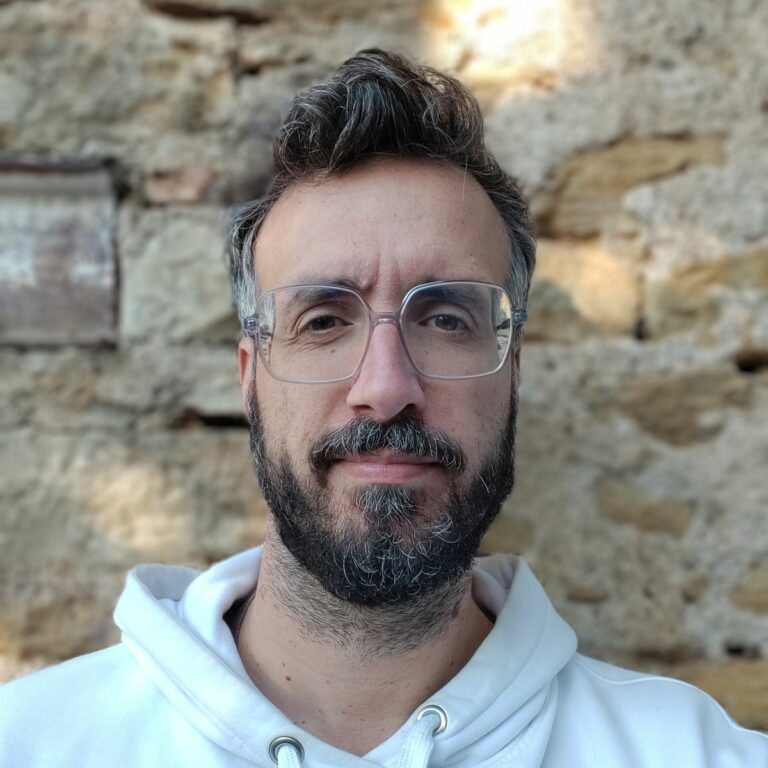
Rethinking our position as creators: lessons learned from Inua
This presentation explores how collaboration with Inuit artists and elders guided us in reshaping our game project. Through this process, we worked to create a respectful experience that reflects both Inuit culture and our own identity as creators.
18 NOV
16:10
PATIO
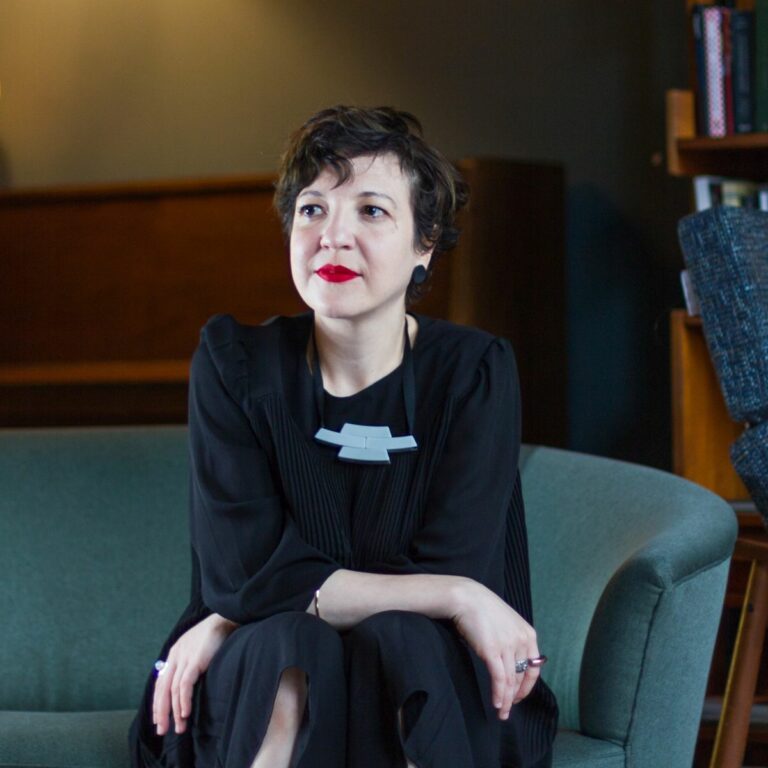
From heritage to games: We Are Muesli's approach to "applied games".
Can cultural heritage be playful? Yes, but every heritage needs the right game format. We Are Muesli, an independent studio, uses games, video games and escape rooms to connect people with collective history and memories.
18 NOV
16:50
PATIO

Dungeons of Hinterberg: a magic lens for practical issues
This talk explores how Dungeons of Hinterberg (Microbird Games, 2024) addresses socially relevant issues such as personal growth, community, (over)tourism, the environment, and mythology in folklore.
18 NOV
17:30
PATIO
Round Table: PLAYABLE SPAIN: HOW VIDEO GAMES CAN CONVEY LOCAL CULTURES
Locomalito and Novelingo created Maldita Castilla and Flamenco! respectively. The former is an action platformer "with a compendium of myths from medieval Spain"; the latter allows players to discover more about traditional Andalusian music and dance. Building on the authors' research work and sources of inspiration, the roundtable focuses on how video games can convey local cultures and encourage players to learn more about specific territories, events and themes.
18 NOV
18:30
PATIO
Round Table: CULTURAL HERITAGE IN SCHOOL: DISCOVERING THE WORLD THROUGH VIDEO GAMES
Digital games are not usually considered within education and are even considered dangerous for students. It is commonplace to be displaced in order to achieve a full revelation of their cultural potential. This also affects how games can address the real world and heritage in general. IVIPRO Association and DIDPATRI will share their practical experience in the field to deepen the possible connections between digital games, cultural heritage and school programs in Italy and Spain.
18 NOV
19:15
PATIO
TRACK 3
Playing in the museum:
experiments in decolonialism
TUESDAY 19 NOV
10:00 - 14:00
PROJECTION ROOM

Track curated by:
The idea of decolonialism is poised to move beyond the sphere of academic analysis and discussion into the realm of practical application and action to facilitate change. In conjunction with the interactive medium of games, a discussion of how the latter can be used to provide “decolonial options” (Mignolo 2002) has to find a format that resonates with the basic principles of its content.
Therefore, we would like to approach the topic with an approach that evokes co-creative thoughts and ideas through dialogue and collaboration among the participants. The workshop will use the open framework of the six goals of decolonization by creating six workshop tables to work from different angles on the characteristics and possibilities of games/playful media with respect to these goals to highlight avenues for future applications.
The idea is to have about six “guest players”, one to join each workshop table and its participants. The guest players will not be asked to prepare a presentation but we will ask for their active, creative and disruptive participation. All participants will work together to generate ideas or prototype game experiments.
Workshop: Playing in the Museum: Experiments in Decolonialism
The workshop will use the open framework of the six objectives of decolonization by creating six workshop tables to work from different angles on the characteristics and possibilities of games/play media with respect to these objectives to highlight avenues for future applications.
19 NOV
10:00
PROJECTION ROOM
TRACK 4
Playing with the world: education and videogames in a gamified world
TUESDAY 19 NOV
10:00 - 14:00
PATIO

Track curated by:
In video games we find new ways of explaining and understanding how reality and the world around us work. As an eminently visual machine, it has its own regime of truth and forms of signification that differ from other forms even though they share certain elements and ways of constructing discourses.
In our society it is one of the spaces where subjectivity and cultural identity are built. The physical and virtual worlds feed back into each other, turning the videoludic medium into a socio-spatial practice in which the problems that affect our societies are embodied.
From this premise we propose to reflect in this track on the role of video games as cultural artifacts from which we learn about how the world around us works and the problems that surround their use within the educational environment as a learning tool rather than as an object of literacy itself.

Playing Abstractions. Play and learning models.
The aim of this communication is to establish the logic of pattern formation for knowledge as well as its translation to the logic of videoludic entertainment and its potential uses.
19 NOV
10:10
PATIO

Dialectics of Desire. Aesthetics and Affect in the Video Game.
An approach to the experiential aesthetics of video games, where desire, play and affection create a cycle of constant renewal. We will explore how video games can go beyond entertainment and open up aesthetics of resistance and subculture.
19 NOV
10:50
PATIO
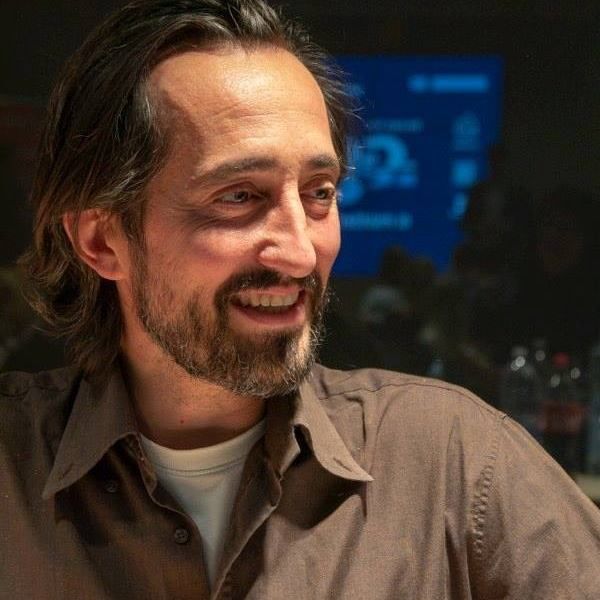
Learn with Antura: Game Design for Education
The Antura project began in 2016 with the goal of helping Syrian children learn to read. Since then, the game has evolved to teach multiple languages and civics education to immigrant children. In this talk, we will explore key challenges in game design and development. Since the project is open source, you can follow or even contribute to its continued development.
19 NOV
11:30
PATIO

Gender Identity and Feminism: Uncovering Power Structures in the Video Game Industry
Our social identity and our online identity are intimately linked, and are deeply marked by the characteristics of the gender relations established in our society. This is indicative of a serious problem.
19 NOV
12:20
PATIO
Mesa redonda: EDUCATION AND (VIDEO)GAMES, AN INTERDISCIPLINARY LOOK
Video games allow us to learn about the world and the reality that surrounds us. Their modes of meaning and construction of "truth" permeate other areas of society and our daily lives. A minimum media-play literacy becomes essential to understand its idiosyncrasy since it is one of the most preferred expressive media for young people. However, the (video)game relationship is not without problems since in many cases it implies a use as a tool for learning but not learning in itself in both formal and informal education. What is being done by the educational community, institutions or creators? From an interdisciplinary point of view, we will address these and other questions, providing ways of working to make the public discourse more complex.
19 NOV
13:00
PATIO

CLOSING PLENARY SESSION
TUESDAY 19 NOV
16:00 - 18:30
PATIO
NETWORKING
An opportunity to get to know each other and seek synergies for our projects.
19 NOV
16:00
PATIO
CIVIS GAME JAM AWARDS CEREMONY
The most innovative game and the game with the greatest potential for impact were awarded at the Civis Game Jam held on October 18, 19 and 20 at La Noria.
19 NOV
17:00
PATIO
CLOSING OF THE EVENT
At the end of the event we will carry out a collective analysis of the conference with the participation of the audience as well as the curatorial team of the tracks and the organization.
19 NOV
17:30
PATIO

